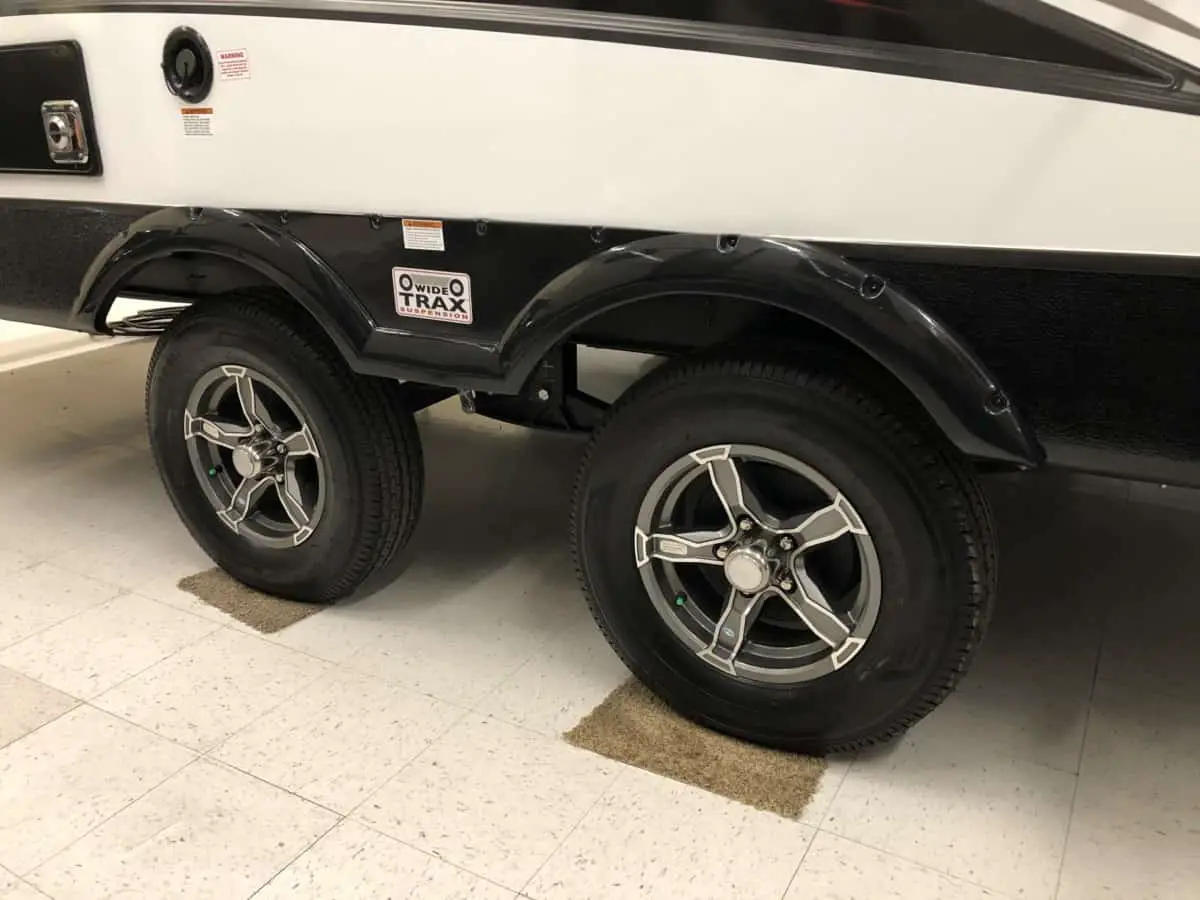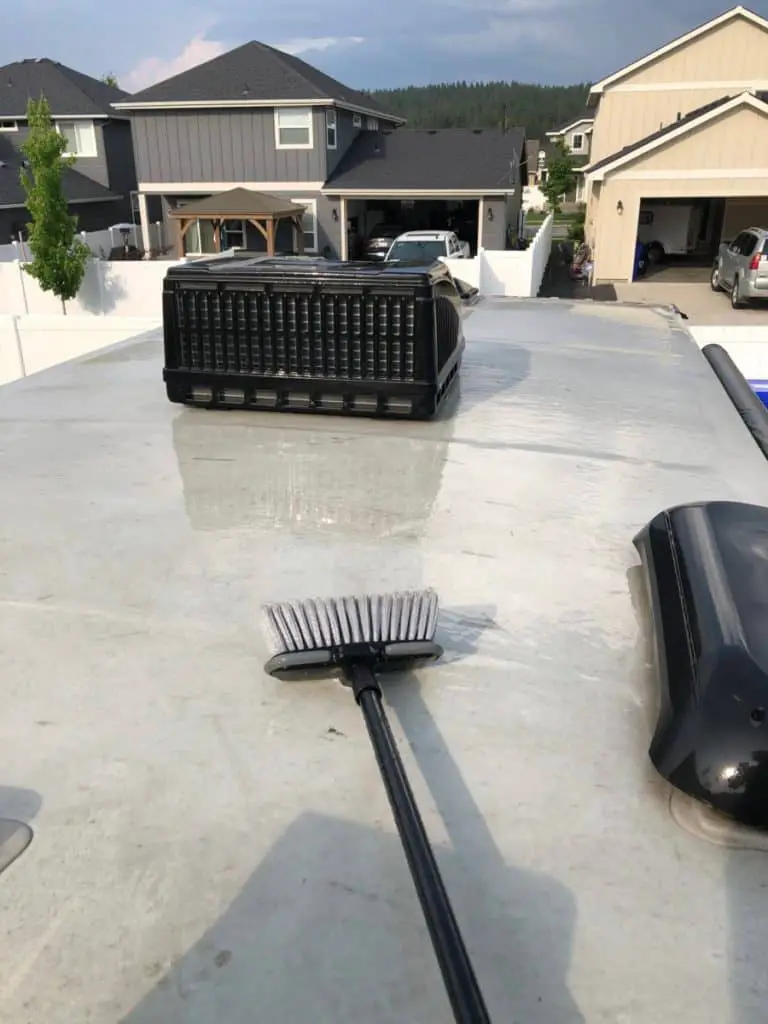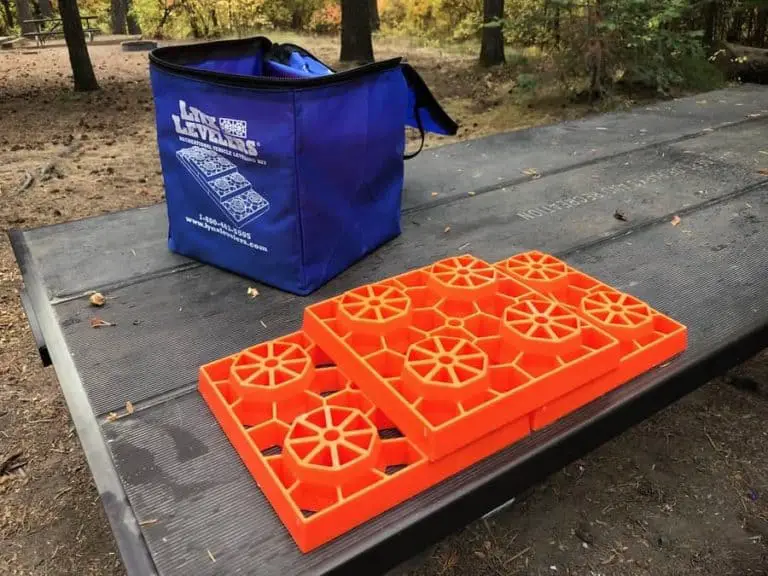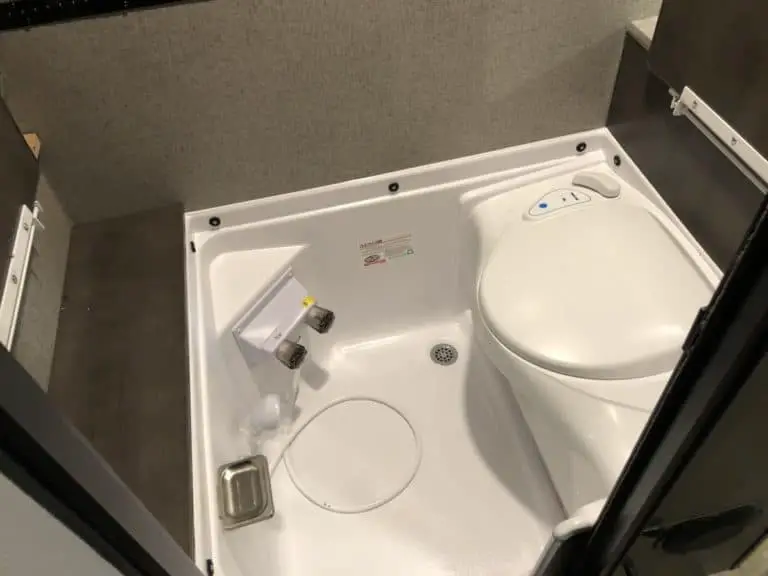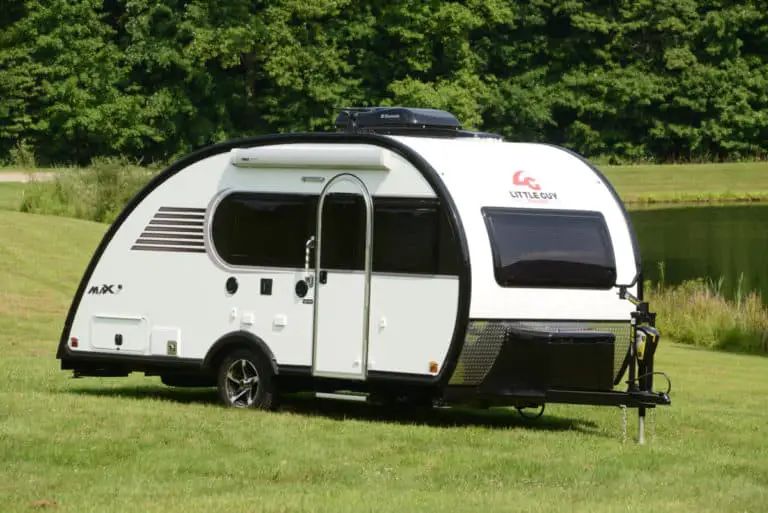How much do Travel Trailer Tires Cost? Plus Examples
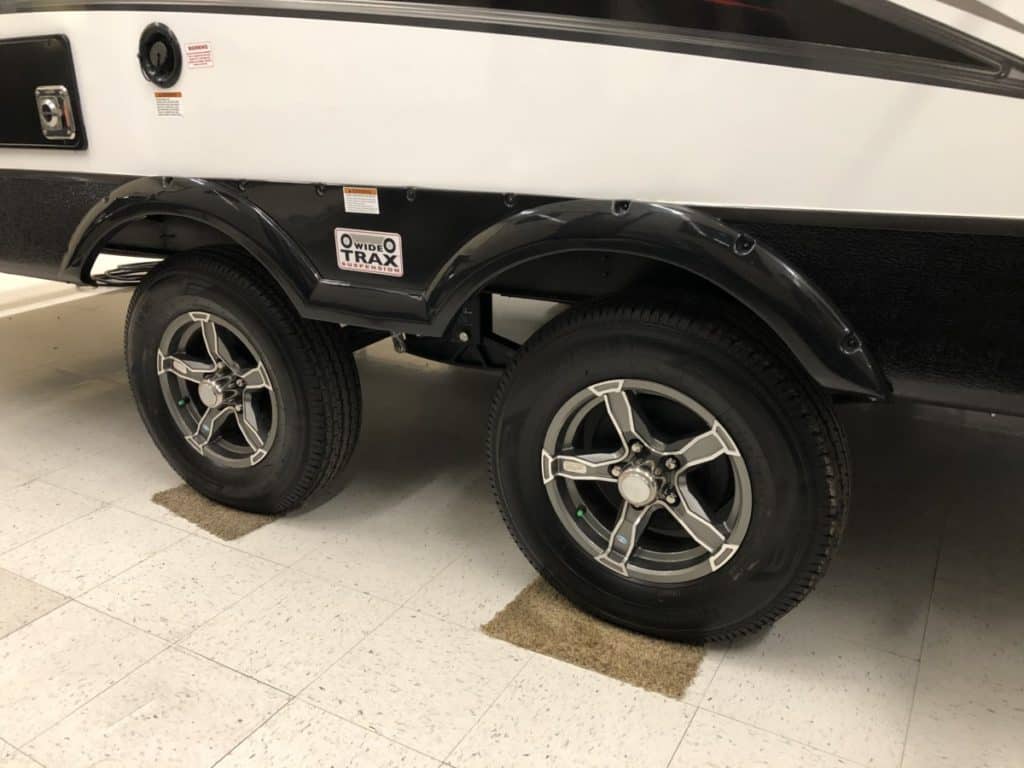
When picking out your new travel trailer, you may not give too much thought to the tires. We often look at the exciting features of the vehicle and allow the basic factors such as tires to go unnoticed. However tempting it may be to overlook this simple detail, travel trailer tires have many qualities and options that you should be aware of. For the sake of convenience, this is an all-encompassing guide to travel trailer tires. So, what are the important things to consider when choosing or maintaining the tires of your travel trailer?
How much do Travel Trailer Tires cost? Travel trailer tires cost between $70 and $150 each depending on the size, quality, type, and brand. It is better to find a tire with a good warranty and a good brand backing it up than a cheap tire that is not well reviewed. Top trailer tire brands are Goodyear, Michelin, and more.
When deciding on tires for your travel trailer, it is important to consider the different types. Size, maximum weight, and load rating are all vital qualities to consider as well. Knowing these, among other factors, will help ensure that you choose the best tires for your vehicle and avoid tire-associated issues in the future.
Cost of Travel Trailer Tires
The cost of travel trailer tires is determined by all of the items below. For some examples, here is a look into tires for 4 different trailers.
Keystone Bullett 243BHS
Keystone uses ST205/75/R14 Tires
| Tire | Price |
| Goodyear Endurance | $118.99 |
| Power King Towmax STR II Load C | $68.07 |
| Power King Towmax STR II Load D | $71.57 |
Rockwood Mini Lite 2109S
Rockwood Uses ST205/75R15 Tires
| Tire | Price |
| Goodyear Endurance | $122.99 |
| Power King Towmax STR II Load C | $72.36 |
| Power King Towmax STR II Load D | $76.60 |
Airstream Flying Cloud 30
Airstream uses a LT225/75R15 Tire
| Tire | Price |
| Hankook Dynapro HTRH12 | $145.95 |
| Goodyear Endurance | $130.12 |
Types of Travel Trailer Tires
The most common types of tires for your travel trailer are Special Trailer tires and Light Truck tires. Many people have strong opinions on which types of tires are best for travel trailers, but the best choice for you will depend on a number of factors. Let’s take a look at each of these types of tires and their unique qualities.
Special Trailer (ST) Tires:
ST tires are designed for carrying heavy loads, maintaining stiffer sidewalls, and dissipating the heat that builds within the tire. You can determine whether or not a tire is an ST tire by checking for the letters ‘ST’ located on the sidewall in front of the size number of the tire. Here are a few of the qualities that make ST tires a good option to consider:
- The stiffness of the tire sidewalls helps prevent trailer sway.
- The dissipation of heat in these tires helps avoid one of the most common causes of tire failure.
- These tires can carry larger loads.
- These tires are designed with travel trailers in mind.
Light Truck (LT) Tires:
LT tires are designed to maintain consistent traction during the breaking, accelerating, cornering, and backing processes. You can determine whether or not a tire is an LT tire by checking for the letters ‘LT’ located on the sidewall in front of the size number of the tire. Here are a few of the advantages of LT tires:
- These tires maintain good ride comfort while accelerating, braking, and turning due to softer sidewalls.
- They often have a better speed rating when compared to ST tires.
- They often have more affordable prices than ST tires.
How to find the right tire for you?
Finding the right travel trailer tires for your vehicle will depend on several factors. Below we will take a look at the most important things to consider when making this decision.
Size: It is important to weigh your trailer in order to determine the tires you need. Find a location to weigh your RV at its maximum weight, that is, with all equipment and gear loaded in the trailer. Once you get this number, you will be able to accurately assess the load range required for your trailer.
Maximum Weight and Load Rating: The load range of your tires will be indicated by a letter rating. On ST tires, these letters are usually B, C, or D, while on LT tires, these letters will be D or E. The further the letter is in the alphabet, the higher the maximum weight will be for that particular tire. It is important to remember that this rating must align well with your trailer weight as well as the axle ratings for your trailer.
Strength of the Sidewall: As previously mentioned, the sidewalls of LT tires are more flexible, which allows for shock absorption and a more comfortable ride. The cabinets, and other equipment in your trailer will thank you for the softer ride. ST tire sidewalls are stiffer, which allows for reduced trailer sway and the ability to carry a larger load. For this reason, travel trailer owners often recommend ST tires over LT tires.
Ride Quality: Ride quality is important to consider when choosing tires for your travel trailer. You may be inclined to focus on the quality and durability of your tires, but ride quality can significantly impact how bumpy or smooth your travels will be. Check the reviews of certain tires and ask a professional to help you determine the best combination of quality, suitability for your trailer, and ride comfort for smooth travels.
Tread Pattern: The tread pattern on your travel trailer tires can help the tires dig deeper into the ground for better traction, especially when traveling on terrain other than a paved road. A deeper tread helps ensure a safer journey and a more comfortable ride. This is why worn tires with reduced tread will eventually need to be replaced.
See a Professional to help: Even though you know all of the factors to consider when purchasing tires, it is always a good idea to seek professional advice when making this decision. Getting a second opinion can help you catch factors you may have overlooked and make sure you end up with the best, safest tires for your vehicle.
What causes travel trailer tire failure?
Travel trailer tire failure is, unfortunately, a common issue with these vehicles. It is important to know the common risk factors so you can avoid cracks, blowouts, and other reasons for losing perfectly good tires prematurely. Consider the following issues so that you can ensure that you get the longest life out of your tires and avoid inconvenience on the road.
Improper inflation: Over or under-inflation can both prevent you from getting the longest possible use out of your travel trailer tires. If the tire pressure is low, heat buildup in the tire can lead to a blowout. If the tire is over-inflated, the tread can wear down faster than normal, preventing you from getting the maximum use out of your tires. You can buy a kit to check the inflation of your tires at home, so preventing this issue is simple, yet extremely necessary.
Cheap Tires: Unfortunately, companies often like to cut costs and may stock cheaper versions of their tires. Tires made in China have a particularly negative reputation for making false claims and blowing out prematurely. It is worth investing in quality tires to avoid tire failure.
That being said, manufacturers of any tire are required to pass certain road-tests in order to sell their tires. No company wants to sell tires that don’t pass regulations, because they would then be required to recall the product, resulting in a loss of income for the company. If you do your research and make sure your tires have passed all the regulatory road-tests, you should be able to avoid failure due to lower-quality products.
Damaged due to cracking: Weather and other elements such as air quality and ozone levels can cause your tires to wear out over time. This process may eventually result in cracks. You may notice small lines or flaking beginning to develop on your tires, or you may even have more severe damage due to cracking. You should have any severe cracks inspected. Make sure not to drive on them until a professional has ensured that they are safe to take on the road.
Overloading: Overloading your travel trailer tires is another factor that can generate excess heat buildup in your tires. Excess heat in tires is one of the biggest causes of travel trailer tire failure, so it is important to avoid this at all costs. Knowing the weight limit of your trailer and ensuring you never exceed it will help you prevent any damage due to overloading.
Unbalanced: This isn’t as crucial as it is with the typical car, but getting the tires balanced on your travel trailer is an effective way to prevent failure. Balancing your tires slows the wearing process and reduces heat buildup inside the tire. This is a smart way to increase the lifespan of your tires and stay safe on the road. To learn more about balancing your tires, read our guide here.
Incorrect Alignment: Incorrect alignment can also speed up the wearing process of your travel trailer tires, add to heat buildup, and lead to some tires wearing out before others. Make sure your tires are properly aligned to maximize the lifetime of your tires and avoid tire failure.
Uneven weight distribution: Uneven weight distribution on your tires can cause the tires to wear unevenly, cause excessive heat buildup in certain tires, and even lead to premature tire failure. It is a good idea to make sure the weight is distributed evenly across your travel trailer to prevent this common cause of tire failure.
Factors that determine the cost of travel trailer tires
The cost of your travel trailer tires will depend on a number of factors, as well. It is worth weighing the important qualities of your tires, as well as the potential failure factors, against the cost in order to ensure you make the best decision for your vehicle. Below we will take a look at a few factors that determine the cost, so you can include them in your decision-making process.
Brand: Certain brands have better reputations within the travel trailer tire market than others. Brands like Goodyear, Michelin, Road Warrior, and Bridgestone may cost more than other tires, but the brand dependability may be worth it. It’s a good idea to speak with a professional to weigh the quality versus the cost of these tires to determine if it is worth the additional cost of certain brands.
Size: Bigger tires will usually cost more than smaller, lighter models. The size of the tires you need will depend on the size of your travel trailer, so choosing the right size is an important investment to make when choosing travel trailer tires.
Load Rating: Tires with a higher load rating will also frequently have a higher price. Determining the load rating your travel trailer requires is another way to maximize the life of the tires, so purchasing tires with the appropriate load rating is a great investment for ensuring you get the most out of your tires.
Conclusion
Although travel trailer tires may be one of the least exciting parts of these vehicles, they are crucial to consider, research, and maintain in order to ensure a safe and fun travel experience for you and your camping partners. There are many factors to consider when deciding on tires for your travel trailer, and they are all worth thoroughly researching prior to purchase. A bit of research, professional help, and user maintenance can go a long way to ensure you get the maximum use out of your tires and stay safe on the road.
Be the first to be notified about FREE tips, hints, coupon codes, and email-exclusive information. All for FREE!

